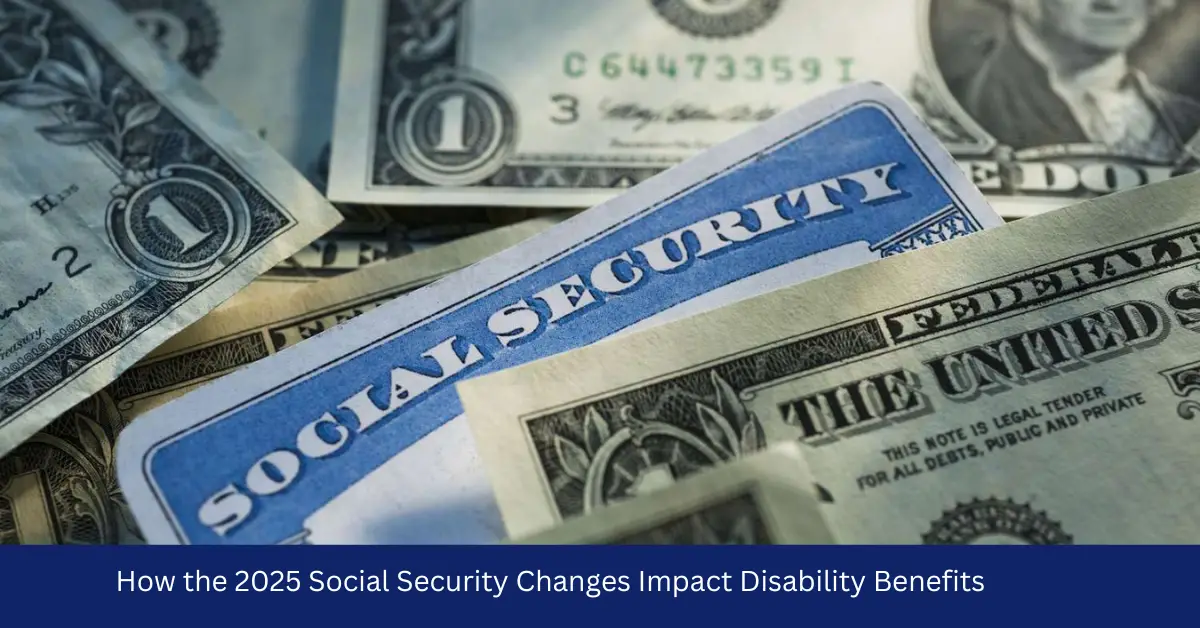A new proposal by the Social Security Administration (SSA) has raised serious concerns for thousands of families, especially in immigrant communities and among vulnerable groups like disabled children, elderly citizens, and low-income recipients.
The change, if approved, would ban anyone without a Social Security number (SSN) from acting as a representative payee — the person who handles Social Security payments on behalf of someone who cannot manage the funds themselves.
This small rule tweak may sound simple, but it could end up disrupting the lives of around 170,000 beneficiaries across the U.S. and even abroad.
What Is a Representative Payee?
Let’s first understand how this works.
Some people who receive Social Security benefits — such as children with disabilities, adults with severe mental illnesses, or elderly people with cognitive decline — cannot manage their money themselves.
In such cases, the SSA allows a representative payee to handle the benefits. This person is usually a parent, spouse, child, or legal guardian who knows the beneficiary well and can ensure the money is spent on essential needs like:
- Rent or home expenses
- Food and groceries
- Medical treatment
- Education or transportation
These payees do not get to use the money for themselves. They are trusted to manage it for the benefit of the person who earned it or qualified for it.
What the New Proposal Says
The SSA’s proposal would deny anyone without an SSN the ability to serve as a representative payee — even if they are the most suitable person for the role.
Let’s say a U.S.-born disabled child has immigrant parents who don’t have SSNs yet. These parents currently manage the child’s Social Security funds as representative payees. But under the new rule, they would be removed from this role, no matter how involved or responsible they are.
The rule could also affect:
- Immigrant spouses caring for elderly partners with dementia
- Widowed or retired citizens living abroad who depend on relatives for help
- Legal workers who are eligible for benefits but whose relatives don’t have SSNs
Overall, the SSA estimates that this change could affect nearly 170,000 existing payees.
Why Is SSA Considering This?
According to former SSA Commissioner Martin O’Malley, the reasoning may not be based on facts, but rather on political misinformation.
In recent election cycles, false rumors spread that undocumented immigrants were receiving Social Security benefits. This led to public confusion and pressure on the SSA to act — even though the agency made it clear: undocumented immigrants cannot legally receive Social Security payments.

In fact, the SSA had to place a large disclaimer on its website to clarify that the misinformation was not true.
But even with that, this proposal could be seen by some as a way to “crack down” on illegal immigrants — even though the ones getting affected are U.S. citizens and legal residents who rely on a trusted caregiver to manage their benefits.
What Happens If the Rule Is Approved?
If the proposal is finalized, the SSA will need to contact all 170,000 affected representative payees and replace them. But this is easier said than done.
In many cases, the current payee is the best possible choice — like:
- A mother managing benefits for her disabled child
- A husband paying bills for his wife with Alzheimer’s
- A sister caring for her elderly brother
If these people are removed just because they lack an SSN, the SSA will have to assign new representatives. These could be distant relatives, state-appointed individuals, or even organizations or institutions.
According to Kathleen Romig, a senior policy director at the Center on Budget and Policy Priorities, this shift increases the risk of errors, fraud, and mismanagement. A distant agency worker may not understand a person’s real needs the way a close family member does.
In some cases, benefits could be delayed or used improperly. Vulnerable people may end up losing support at a time when they need it most.
Who’s Most at Risk?
This proposal would mainly affect:
- Children with disabilities born in the U.S. but with parents who don’t yet have SSNs.
- Retired or disabled individuals whose caregiver or spouse lacks a Social Security number.
- Widowed citizens living abroad who rely on a relative to help them manage their benefits.
- Legal foreign workers who are entitled to Social Security but depend on a non-SSN payee.
These groups could be cut off from help even though they legally qualify for benefits.
SSA’s Challenge: Replacing the Payees
Finding suitable replacements for 170,000 representative payees will be a huge administrative task. The SSA has faced similar challenges before and had to rely on:
- State-run child welfare agencies
- Social service organizations
- Hospitals or care homes
But such replacements are often less personal and not as attentive as a dedicated parent or spouse.
Plus, many current payees may not be aware of the proposed change until they are contacted — which could lead to confusion, fear, or gaps in payment.
What Happens Next?
Nothing is final as of now. The SSA is still deciding whether it has the legal power to enforce this rule. Even if the rule goes forward, it could face pushback from disability rights advocates, immigrant communities, and civil rights groups.
If implemented, it would take time and significant communication efforts from the SSA to avoid chaos.
But one thing is clear: the proposal has already created concern among families who rely on Social Security as their main source of income.
Little-Known Fact: How to Boost Your Social Security by $22,924 a Year
If you’re already receiving Social Security or nearing retirement, you might not know that many retirees miss out on thousands of dollars each year due to lack of planning.
Experts suggest that smart decisions — like delaying your claim, understanding spousal benefits, or using timing strategies — could add up to $22,924 or more to your yearly income.
Joining a program like Stock Advisor can help you learn how to maximize these benefits so you can retire with more security and less stress.
Final Thoughts
This SSA proposal might look like a technical rule about Social Security numbers, but it could cause real hardship for real families.
It may be based more on misinformation than reality, and the people who suffer most will likely be children, elderly citizens, and disabled adults who can’t manage without the trusted help of a caregiver.
Whether or not the proposal moves forward, it’s a wake-up call for policymakers to carefully examine the real-world consequences of such changes — and for families to stay informed and speak out if needed.
Disclaimer: This article has been meticulously fact-checked by our team to ensure accuracy and uphold transparency. We strive to deliver trustworthy and dependable content to our readers.




